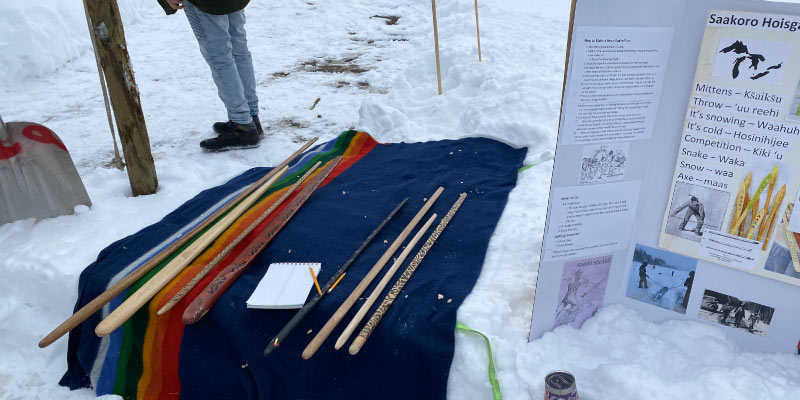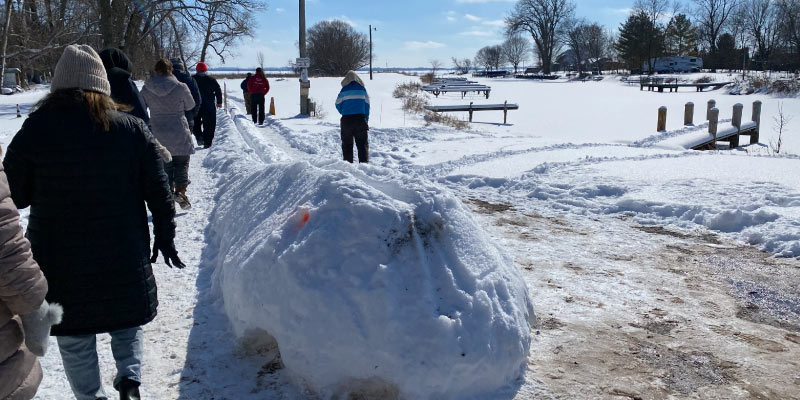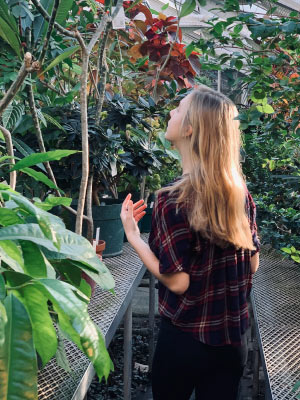The world is Hailey Kuhn’s oyster — and she knows it. With a variety of interests geared toward nature, spirituality, and wellness, it’s only natural for her to want to take an interdisciplinary approach to her undergraduate experience. Why pick one major when she could take two? Why pick one certificate when she could take three? The world is vast and full, and Kuhn is determined to learn and experience all that she can.
In her first year at the University of Wisconsin–Madison, Kuhn took an introductory course suited toward her spirituality interest called Exploring Religion in Sickness and Health, which centered on how religious communities viewed and understood a variety of diseases. “I really liked that, it nuanced my perspectives on religion and wellness, and it got me hooked on religious studies,” Kuhn said.

However, she knew there was more that she could do with her education, and, on the advice of her dad, took an introductory botany course. This nurtured her interest in plants and got her thinking about how her varied interests overlap. The next semester she enrolled in an ethnobotany course which opened her eyes to how culture and religion fit with understandings and uses of the environment. “That’s been my path now — different avenues of ethnobotany, whether on the more spiritual/ritual side or the more material side, like with foods and medicines,” Kuhn said. “Especially how native plants are used by Native Americans of the Midwest.”
With majors in environmental studies and religious studies and certificates in South Asian studies, American Indian and Indigenous studies, and French, Kuhn has fulfilled her search for an interdisciplinary education and will graduate in the spring of 2024. Throughout her undergraduate career, Kuhn has taken opportunities to make connections and advance her knowledge for the subjects she is passionate about, including chatting with Anna Gade, environmental studies chair and professor who shares similar passions with Kuhn.
“I took her environmental humanities course and another on Islam, which led to a lot of chats with her,” Kuhn said. “I love talking with her because we both question and hope to understand environmental themes and narratives through a religious lens. She’s been a huge mentor of mine in terms of figuring out what I’m doing, where I’m going, and how to use the knowledge that I’ve gained.”
 Another mentor that shaped Kuhn’s education was Native Nations Partnerships faculty associate Jessie Conaway. For her environmental studies capstone course, Kuhn was introduced to Conaway’s project on wild rice conservation with Brothertown Indian Nation, a Tribal Nation and Native community in Wisconsin. Kuhn’s contribution to this project included creating a decolonized map that used Native languages to highlight key locations near the wild rice conservation site. She says that researching Native American creation stories, migration stories, and sacred sites was instrumental in this process.
Another mentor that shaped Kuhn’s education was Native Nations Partnerships faculty associate Jessie Conaway. For her environmental studies capstone course, Kuhn was introduced to Conaway’s project on wild rice conservation with Brothertown Indian Nation, a Tribal Nation and Native community in Wisconsin. Kuhn’s contribution to this project included creating a decolonized map that used Native languages to highlight key locations near the wild rice conservation site. She says that researching Native American creation stories, migration stories, and sacred sites was instrumental in this process.
Continuing her interest in Native studies, Kuhn will be authoring a thesis paper titled “Traditional Anishinaabe Lifeways and Their Present Revitalizations” which is funded by the University of Wisconsin–Madison Letters & Science Honors Program through a Trewartha Senior Thesis Research Grant. Kuhn’s thesis will center on traditional ideologies and understandings of nature through local, Native perspectives.

“I want to center a lot of Native voices in this thesis in order to do these communities justice. I’m going to be emphasizing their voices very specifically so that they may be the ones to tell their stories,” Kuhn said. “I am in the process of selecting these primary sources, and I have also done a lot of literature reviews, including finding primary sources and secondary analyses of different Anishinaabe traditions and uses of plants in Ojibwe traditions.”
In addition to her studies, Kuhn has helped prep botany labs, harvested with the People’s Farm community garden, and worked with the Ethical and Responsible Business Network on a project to promote the organic, local, and sustainable products used by Bloom Bake Shop. Kuhn advises other students to do the same as she has — get involved, stay connected, and explore as many opportunities as possible.
Kuhn’s future, while uncertain, is still bright with possibilities. The world is her oyster, after all, and Kuhn knows her interdisciplinary education will allow her to help solve problems and improve the world.